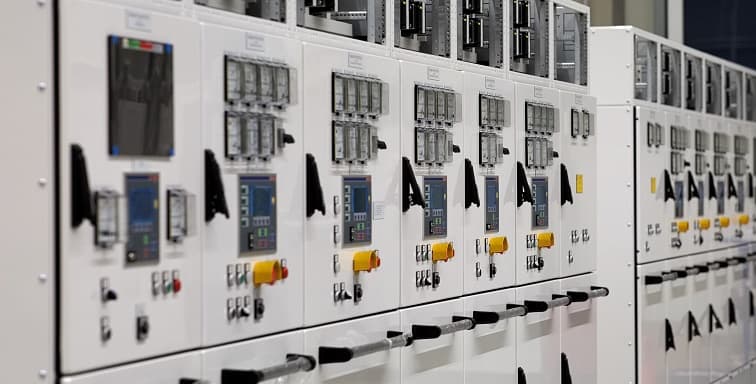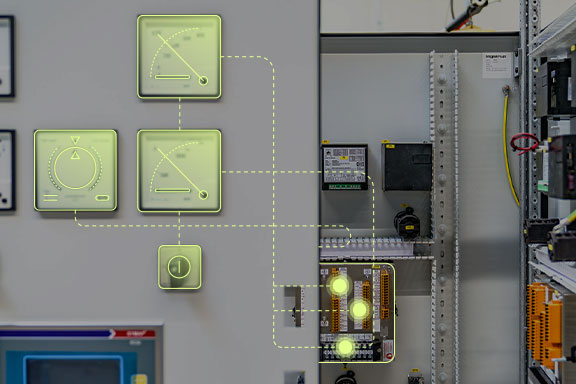MarESiS
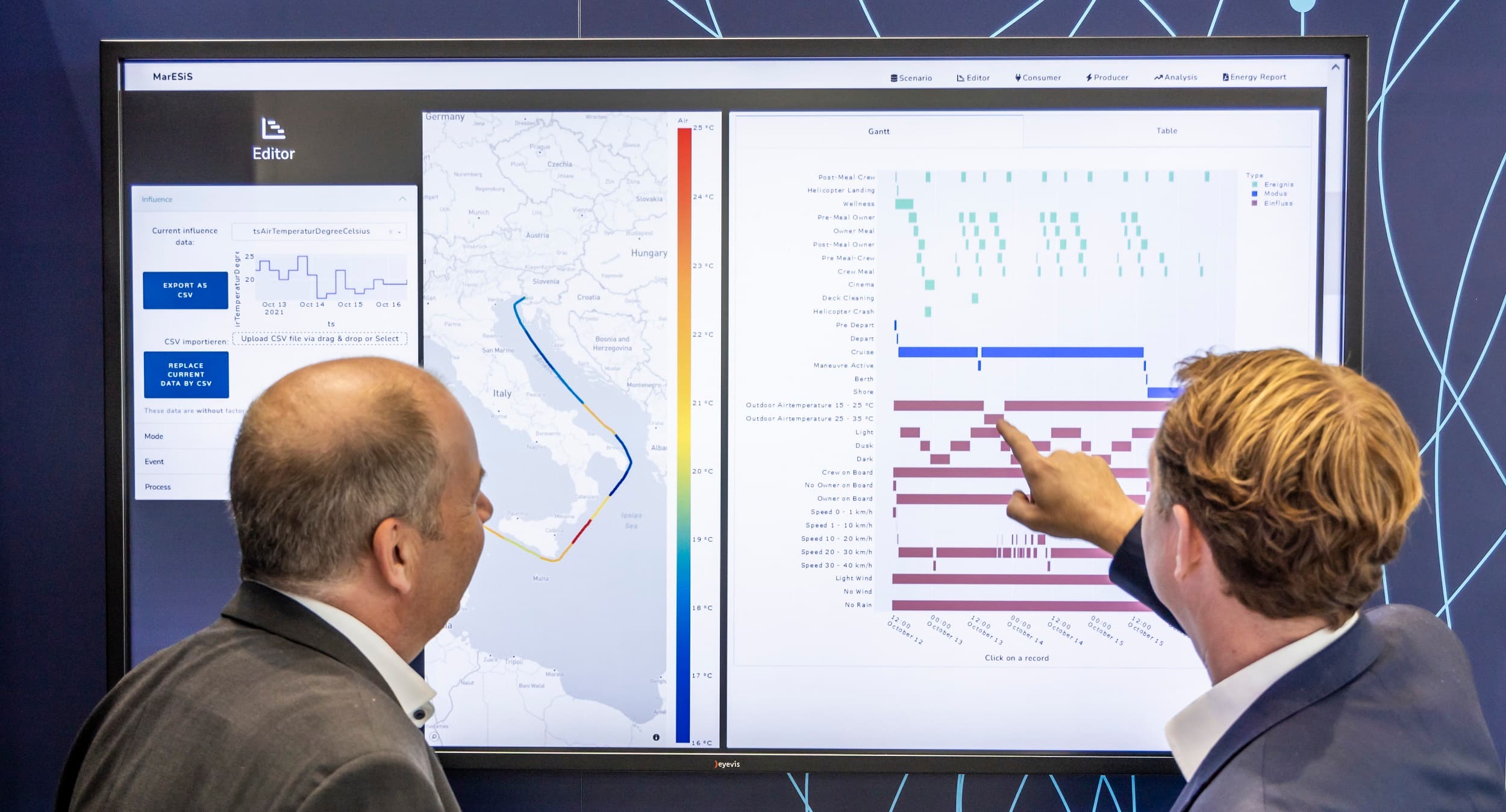
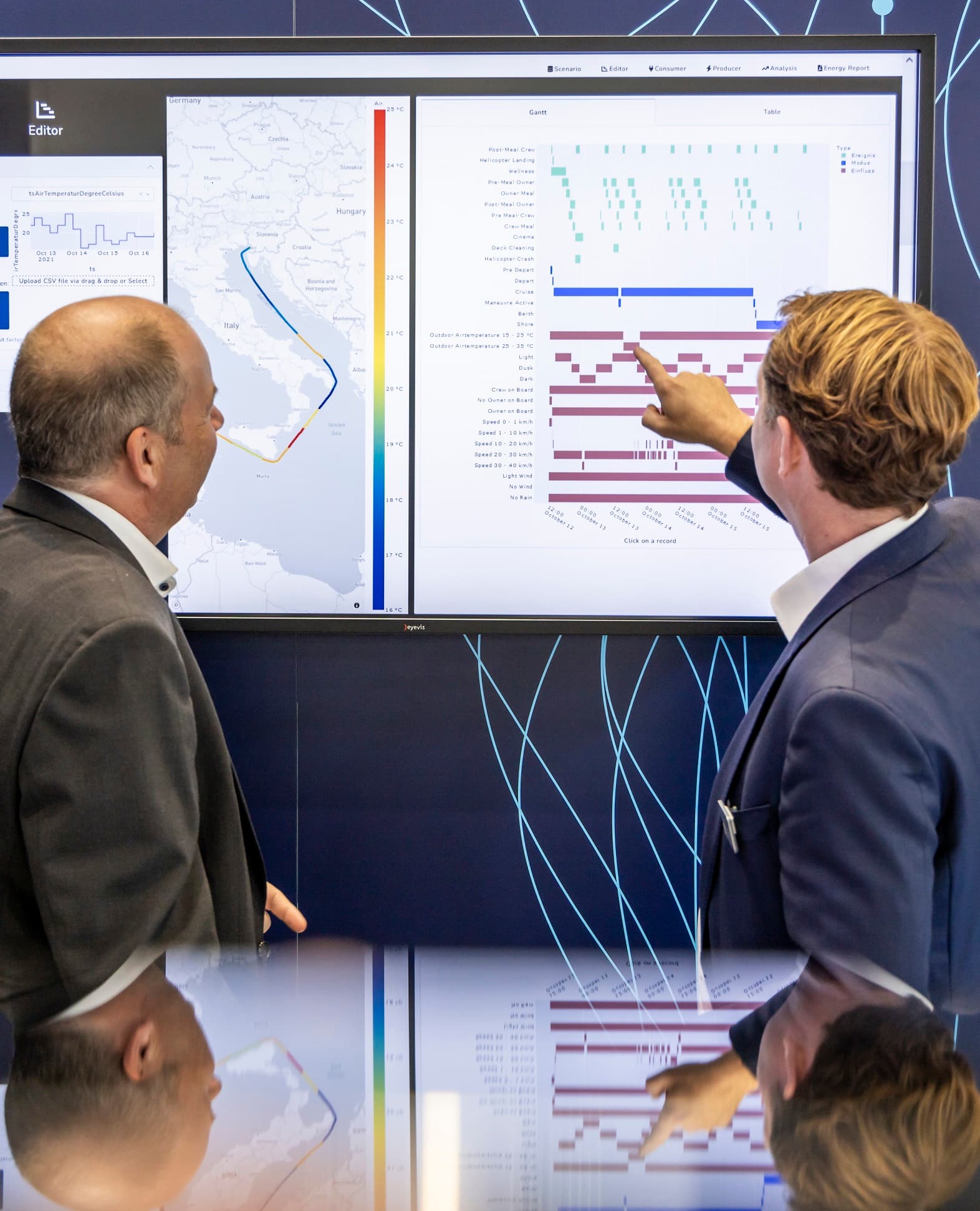
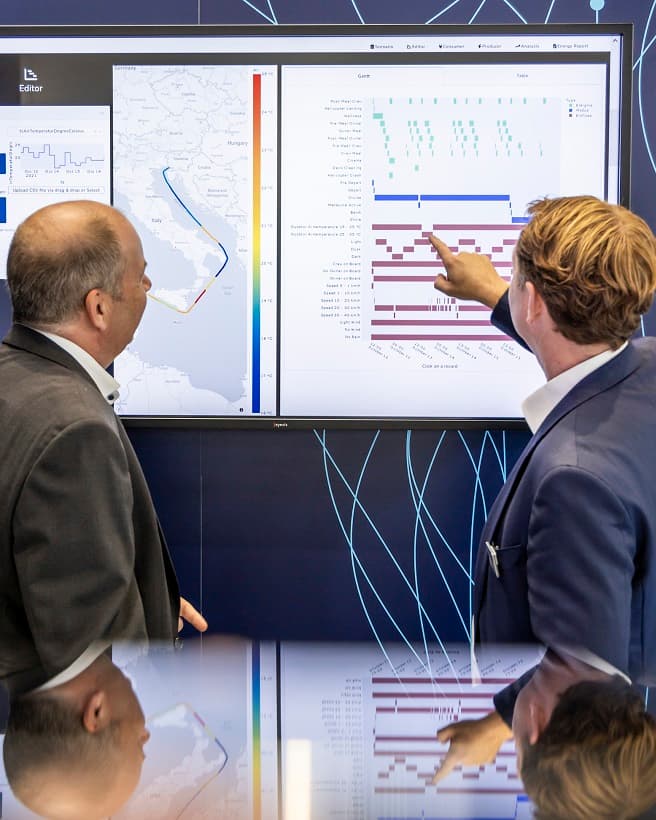
You know this?
The impact of MarESiS
Why it will get you smarter:
Features
Maritime Energy Simulation for the Configuration of Electrical and Hybrid Ship System
Our clients' view
FAQs
What does a simulation/energy consultation cost?
The costs are based on the range and level of detail of the simulation. The number of simulated consumers, the number of state parameters which have to considered and the number and duration of the simulated scenarios are the price-forming factors.
Can I purchase MarESiS and do the simulation myself?
No. MarESiS is a powerful and complex tool with a knowledge database in the background. The operation and analysis are complex. Our employees have been trained for this in a process over several years.
What is the result of an energy simulation with MarESiS?
For each simulation, an individual energy report will be created. This includes a description of the simulated scenarios, the determined load profile and a proposal for a generator storage concept to operate your ship. On request, we compare different concepts and contrast existing concepts and energy balances.
Is the simulation based on real data?
The basis of every energy simulation are real routes and weather data of comparable ships. This can be a cruise of the previous ship, other ships in your fleet or any ship of the same type from our database. Typically, the linking of consumer activities with condition parameters is based on empirical values and the vessel specification.
If we have specific measurement data for the behaviour of consumers depending on the ambient conditions, we include these in the simulation, so that the system trains itself.
What is MarESiS?
MarESiS is our tool to create an optimised energy concept for your new vessel or retrofit project. For this purpose, we simulate the behaviour of the electrical consumers on board in relation to the ship‘s operating modes, on-board events, environmental influences. With this, we model the behaviour of generators, fuel cells, batteries and other generators
and storage systems on the determined load profile.
